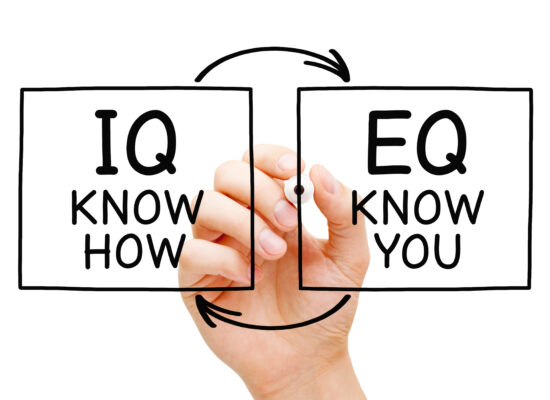Click Here For More Information
Please Note! Workshop attendees should purchase and complete the assessment in Emotional Intelligence 2.0 prior to class. Cost is approximately $15 and can be purchased on the following link:
Emotional Intelligence Assessment
Workshop Summary:
Mastering Emotional Intelligence is vital to being an effective employee, team member, manager, leader, family member, or friend; research has proven that those who are more self and socially aware, as well as competent in personal and relationship management earn more money, advance farther in their careers, cope better with stress, are highly productive, and are deemed more likeable, approachable, and respected.
In this workshop, participants will become familiar with the Emotional Intelligence model, its 4 primary components, personal values and how they are connected to emotional triggers, and the challenges people face in trying to manage their emotional reactions and behaviors. Additionally, they will learn how to apply various strategies and skills to increase their emotional intelligence for maximum effectiveness in all areas of their lives.
Learning Objectives:
- Review the concept of emotional intelligence and its four primary components.
- Reveal the “emotional brain”.
- Determine personal core values and understand their connection to our ability to manage emotions.
- Explore what “triggers” our emotions and how they translate into actions and behaviors.
- Recognize the different challenges men and women face in achieving emotional intelligence.
- Demonstrate how the ability to manage others effectively depends upon emotional intelligence competency.
- Determine emotionally intelligent ways to communicate for successful relationship building and maintenance.
- Develop strategies to increase both personal and social emotional intelligence competency.
- Create an Emotional Intelligence Action Plan that includes potential challenges, resources needed, goals that are both reasonable and measurable, and strategies to achieve them.
Observable Behaviors to Watch For:
- The learner should now be able to identify their own emotional triggers and demonstrate a deeper awareness of personal emotional intelligent levels, areas of strength, and areas in need of improvement.
- Having attended this workshop, the learner will demonstrate an increased ability to effectively influence, motivate, and manage others.
- The learner should demonstrate relationship building more competently and effectively.
- After attending this workshop, the learner should display a greater level of self-awareness, the first domain of emotional intelligence. In doing so, they will demonstrate the ability to recognize and understand personal emotions, have awareness of the source of personal feelings and emotions and their impact on oneself, others and performance, and an accurate sense of how other people see you.
- Having improved upon Self-Awareness, the learner should demonstrate a greater level of self-control, the second domain of emotional intelligence. Some of these characteristics include the ability to remain flexible and direct behaviors positively in reaction to people and situations through adaptability, taking initiative and being optimistic in the workplace.
- The ability to accurately perceive, understand and respond to the emotional needs of others is demonstrated through the third domain of emotional intelligence, social awareness. Through developing empathy for others, learners should demonstrate an approved ability to accurately read others’ emotions and nonverbal cues, respect others’ reactions, seeking information rather than assuming, understanding others’ differing perspectives and motives, and communicating an understanding and acceptance of others’ emotions, feelings, and perspectives.
- Finally, the learner should demonstrate the ability to utilize self-awareness, self-management, and social
awareness to develop and maintain productive and healthy relationships, inspire and influence others;
collaborate and cooperate in teams, and effectively manage conflict
Questions to consider in leader/learner debrief conversation:
Self-Awareness
- What are the sources of your emotional triggers – what words do you hear, and actions do you observe that trigger emotional reactions?
- What are your strengths and limitations?
- How often are you aware of your emotions?
- How aware are you when your emotional reactions impact others around you?
Self-Management
- How do you decompress?
- How do you celebrate success?
- How do you persevere through change?
- How often do you take initiative – to solve problems, identify opportunities, address issues?
Social Awareness
- In what situations do you find it challenging to have empathy for others?
- How often are you aware of the emotions of others?
- What do you look for to identify how others are feeling?
Relationship Management
- What methods do you engage with to manage conflict?
- In what ways are you an effective team member?
- How do you support others during difficult times and situations?
- How do you accommodate your communication style during interactions with others?
Cancellation Policy: 5 working days for full refund. Cancellations after that time are charged full tuition for the course.
For more information regarding refund, concerns, and/or program cancellation policies please contact our offices at 919-878-7100 ext. 22





